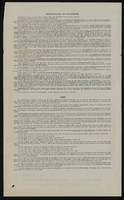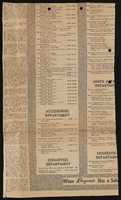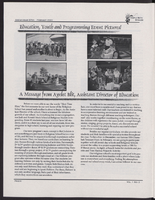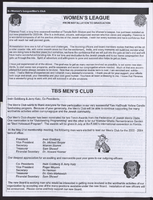Search the Special Collections and Archives Portal
Search Results
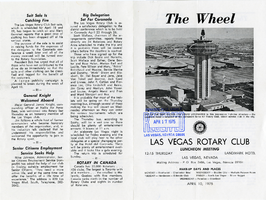
The Wheel Las Vegas Rotary Club newsletter, April 10, 1975
Date
Archival Collection
Description
Text
Jerry Jackson Papers
Identifier
Abstract
The Jerry Jackson Papers, 1953 to 2009, contain materials related to Jackson's career in entertainment as a director, producer, choreographer, writer, lyricist, and costume designer. Jackson's work on
Archival Collection

Della Coates interview, March 18, 1978: transcript
Date
Archival Collection
Description
On March 18, 1978, collector Bill Hitchcock interviewed Della Coates (b. June 17th, 1919 in Birmingham, Alabama) at her home in Las Vegas, Nevada. In the interview, Della Coates discusses her time working for the telephone company. She also speaks about the changes in education and about changes throughout Las Vegas.
Text
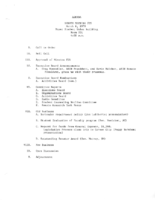
Meeting minutes for Consolidated Student Senate, University of Nevada, Las Vegas, March 06, 1979
Date
Archival Collection
Description
Text

Meeting minutes for Consolidated Student Senate University of Nevada, Las Vegas, November 15, 1984
Date
Archival Collection
Description
Text

Transcript of interview with Lilly Fong by Annie Yuk-Siu Shum, February 29, 1980
Date
Archival Collection
Description
Text

